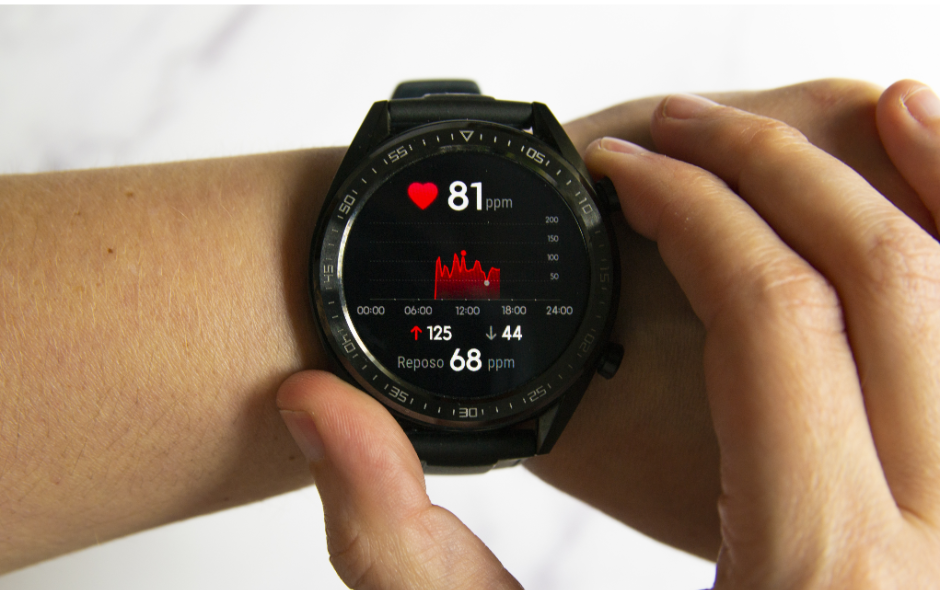Understanding Increased Heartbeat: Causes, Symptoms, and Treatment Options

An increased heartbeat, known as tachycardia, occurs when your heart beats faster than normal at rest. For most adults, a normal resting heart rate ranges between 60 and 100 beats per minute (bpm). Tachycardia is generally defined as a heart rate exceeding 100 bpm. While it’s normal for your heart rate to increase during exercise or stress, a persistently high rate could be a sign of an underlying issue that requires medical attention.
Dr. Vaibhav Mishra, a renowned cardio-thoracic surgeon in Delhi, offers expert insight into understanding increased heart rates and how to address them effectively.
What is Tachycardia?
Tachycardia refers to the condition where the heart beats faster than normal while at rest. This rapid heartbeat can occur in different parts of the heart, leading to various types of tachycardia. The most common types include:
- Atrial fibrillation: An irregular and often rapid heartbeat caused by abnormal electrical impulses in the upper chambers of the heart.
- Supraventricular tachycardia (SVT): A fast heart rhythm that begins in the heart’s upper chambers (atria).
- Ventricular tachycardia: A rapid heartbeat originating from the lower chambers (ventricles), which can be life-threatening if untreated.
Causes of Increased Heartbeat
An elevated heart rate can be triggered by several factors. These can range from temporary conditions to more serious heart-related disorders:
- Physical Exertion: During exercise or physical activity, it’s normal for the heart rate to increase. However, it should return to normal once the activity stops.
- Stress or Anxiety: Emotional stress, anxiety, or panic attacks often lead to a rapid heartbeat. This is due to the body releasing adrenaline as part of its fight-or-flight response.
- Dehydration: Lack of fluids can lower blood pressure, causing the heart to pump faster to compensate.
- Fever: A higher-than-normal body temperature can result in an increased heart rate as the body tries to fight off infection.
- Medical Conditions: Conditions such as hyperthyroidism (an overactive thyroid), anemia, and low blood sugar can trigger an elevated heart rate.
- Medications: Certain drugs, such as decongestants, asthma inhalers, or those used to treat arrhythmias, can cause an increased heart rate as a side effect.
- Substance Use: Excessive consumption of caffeine, alcohol, or nicotine can also contribute to tachycardia.
- Heart-Related Issues: Underlying heart conditions, such as coronary artery disease, heart valve disorders, or heart failure, may result in a persistently fast heartbeat.
Symptoms of Increased Heartbeat
Many people may not even notice that their heart rate is elevated, especially if it’s a mild case. However, for others, tachycardia can cause noticeable symptoms, including:
- Palpitations: A fluttering or pounding sensation in the chest.
- Dizziness or Lightheadedness: Feeling faint or off-balance due to decreased blood flow to the brain.
- Shortness of Breath: Difficulty catching your breath even while at rest.
- Chest Pain: A sharp or pressure-like sensation in the chest, which could signal a more serious heart condition.
- Fatigue: Feeling excessively tired despite not having exerted yourself physically.
If you experience these symptoms regularly, it’s essential to consult a healthcare professional like Dr. Vaibhav Mishra, as untreated tachycardia can lead to serious complications, such as stroke or heart failure.
When to See a Doctor
Not all cases of increased heartbeat are cause for concern. However, you should seek medical attention if you experience:
- Chest pain or discomfort
- Fainting or near-fainting episodes
- Severe shortness of breath
- A sustained heart rate of over 100 bpm while at rest
These could be signs of a more serious heart condition that requires immediate intervention.
Diagnosis and Treatment Options
If you suspect you have tachycardia, a thorough evaluation by a specialist like Dr. Vaibhav Mishra can help determine the cause and provide appropriate treatment. Diagnosis typically involves:
- Electrocardiogram (ECG): A test that records the heart’s electrical activity to detect any irregularities in the rhythm.
- Holter Monitor: A portable device that records your heart rate over 24-48 hours.
- Blood Tests: These can detect underlying conditions like thyroid problems or electrolyte imbalances.
- Imaging Tests: An echocardiogram or MRI of the heart may be recommended to evaluate the heart’s structure and function.
Treatment Options
Treatment for tachycardia depends on its severity and underlying cause. Common approaches include:
- Lifestyle Modifications: Reducing stress, quitting smoking, limiting caffeine, and maintaining a healthy diet can help lower your heart rate.
- Medications: Beta-blockers or calcium channel blockers may be prescribed to regulate your heart rate. If tachycardia is caused by an underlying condition, such as hyperthyroidism, treating the root cause will likely resolve the increased heart rate.
- Cardioversion: This involves using electrical shocks to reset the heart’s rhythm in severe cases.
- Ablation Therapy: A catheter-based procedure where small areas of the heart are destroyed to prevent abnormal electrical signals from causing tachycardia.
- Surgery: In rare cases, surgery may be required to correct an underlying structural issue with the heart.
Prevention Tips
While not all causes of tachycardia can be prevented, certain lifestyle changes can help reduce your risk of developing a rapid heartbeat:
- Exercise Regularly: Physical activity strengthens the heart, helping it pump blood more efficiently.
- Eat a Heart-Healthy Diet: Consuming foods low in sodium, cholesterol, and saturated fats supports heart health.
- Manage Stress: Practice mindfulness, yoga, or meditation to lower your overall stress levels.
- Avoid Stimulants: Limiting caffeine, alcohol, and nicotine can prevent spikes in your heart rate.
